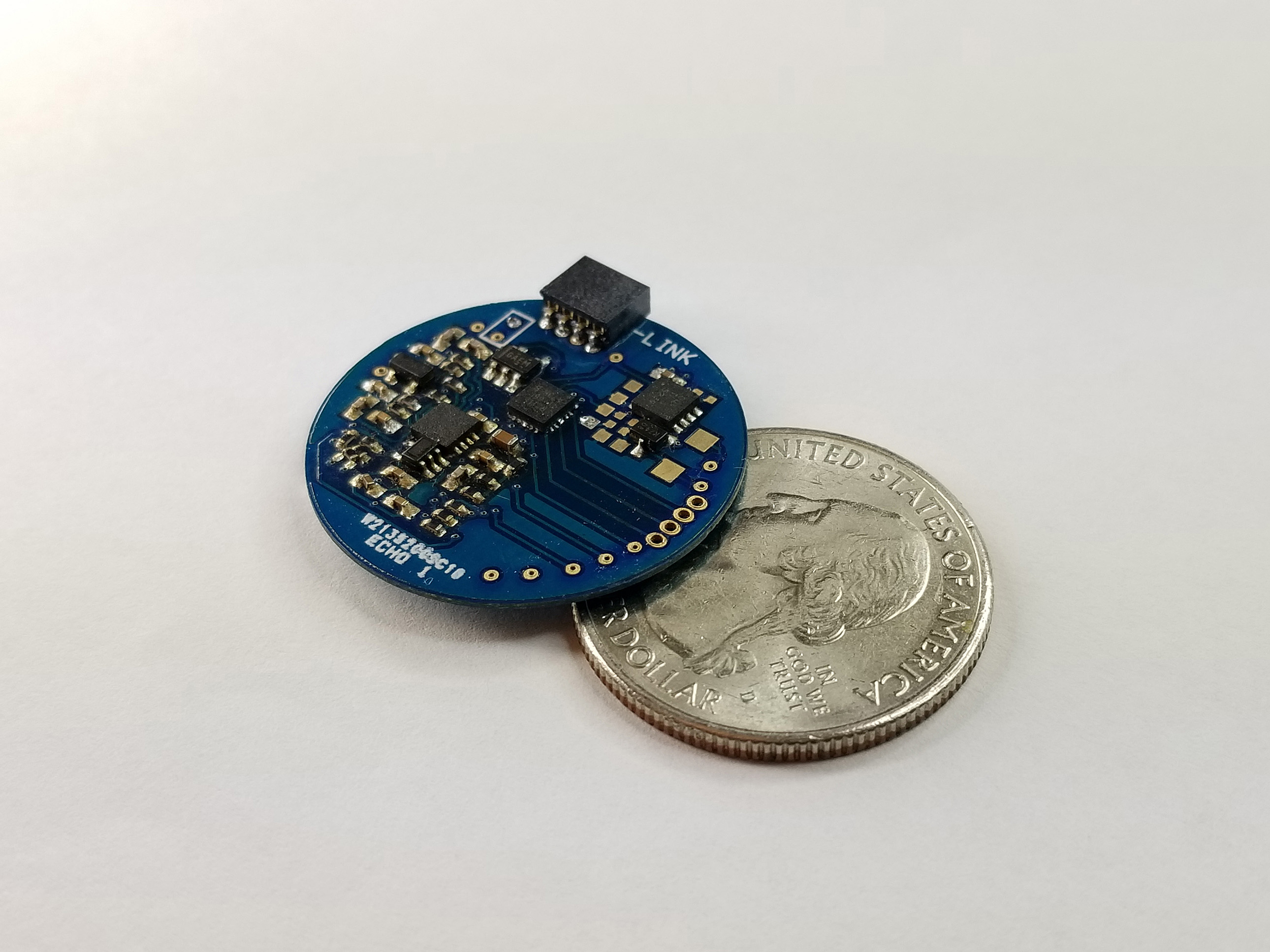NIH awards MR-Link $228,325 to advance development of its magnetic resonance-compatible bio-recording system
MR-Link LLC of West Lafayette has secured the Small Business Technology Transfer (STTR) Phase I grant of $228,325. The goal of the program is to use federal funds to support scientific excellence and increase private sector commercialization of technological innovation.
“This grant is validation for us that our idea is on the right track and there is a need for these kind of technologies that may help researchers to understand human physiology more accurately,” said Ranajay Mandal, one of three MR-Link co-founders.
The coin-sized device works simultaneously with an MRI system to record electro-physiological signals and perform various imaging scans. The device allows researchers to record, stimulate and image the brain and other organs in synchronization the MRI system, allowing them and in the future, medical professionals, to understand patient's physiology more effectively.
The company was founded by Mandal, a graduate student in Purdue University’s Weldon School of Biomedical Engineering; Nishant Babaria, a graduate student in the Purdue School of Electrical and Computer Engineering; and Zhongming Liu, an assistant professor of electrical and computer engineering and biomedical engineering. The company is scheduled to open offices later this month in the Purdue Research Park of West Lafayette, which is managed by the Purdue Research Foundation and is the largest university-affiliated business incubation complex in the country.

More than a thousand startups nationwide applied for Phase I STTR grants. MR-Link was one of only 169 startups to receive funding. A total of 32 startups from Indiana applied for STTR funding this fiscal year and MR-Link was the only one selected.
“We will use this funding to further develop our device and software into a user-friendly system, so that MR-Link can begin to distribute its beta testing units to MRI researchers,” Babaria said. “We hope to also use the money to enrich our research team with new professionals to help us package the software and hardware.”
The researchers say the device has great potential to significantly improve the safety, efficacy and precision of medical diagnostics for patients who suffer from epilepsy, Parkinson’s disease, depression and many other diseases. They also say it is more affordable than other options and could eliminate health risks and provide better imaging.
The researchers will be presenting their research in June at the International Society for Magnetic Resonance in Medicine in Paris. A video about MR-Link is available at https://www.youtube.com/watch?v=pWFPBTyX2B8.
Technology used by MR-Link has been licensed through the Purdue Research Foundation Office of Technology Commercialization. MR-Link plans to target the research market before moving into the clinical market.
“We are open to partnerships with other laboratories and device manufacturers so we could soon deliver devices to more people and to benefit their research and to hopefully soon deliver to clinicians for them to better treat patients,” Liu said.
The research was supported by the National Institute of Neurological Disorders And Stroke of the National Institutes of Health and Elevate Ventures.
